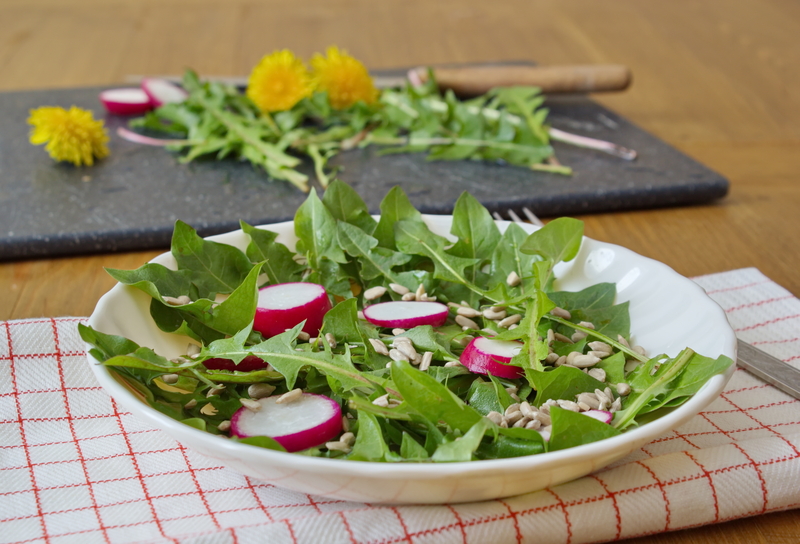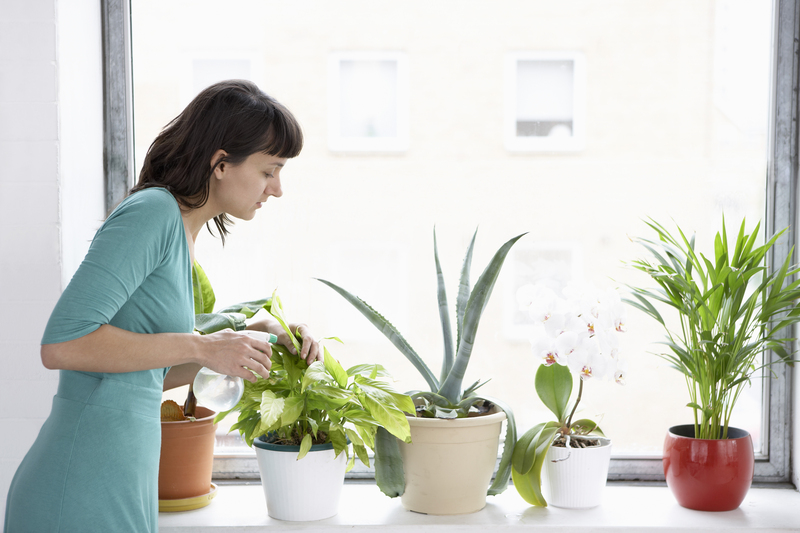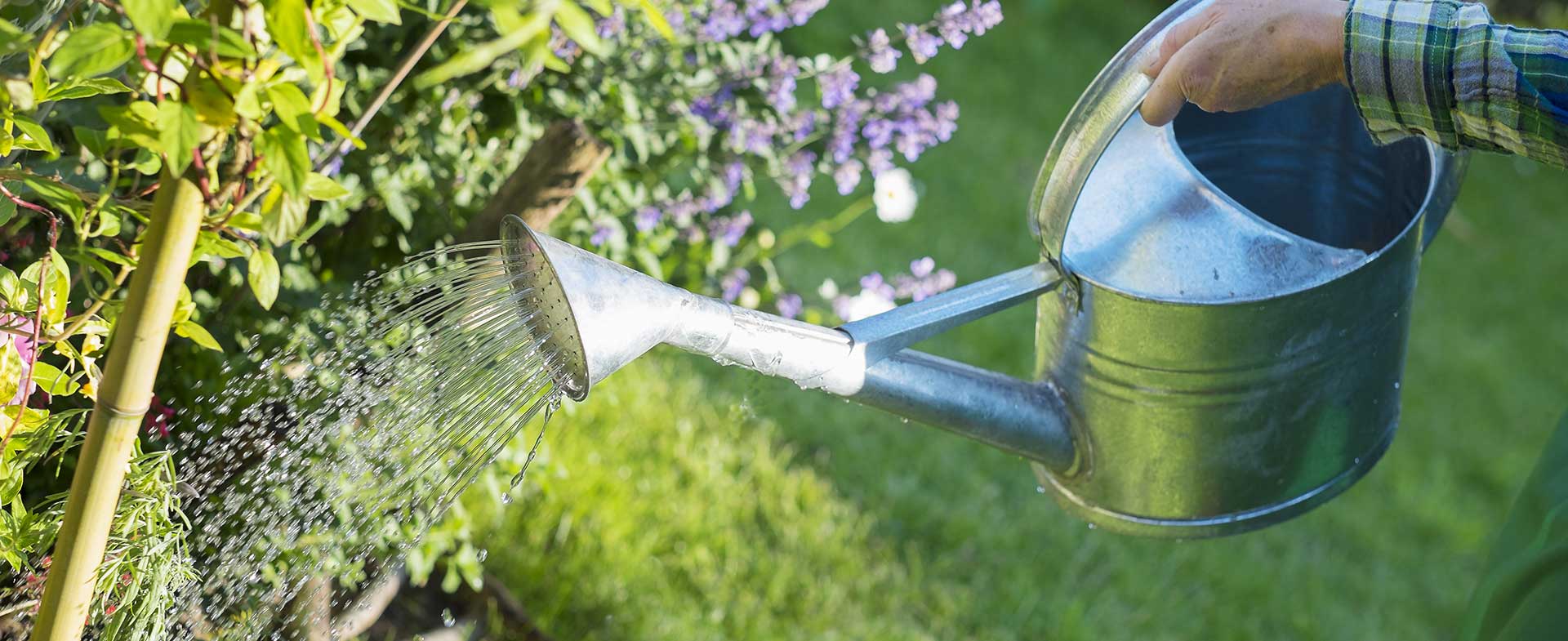Unleash Your Inner Gardener with a Versatile Herb Garden
Posted on 27/09/2025
Unleash Your Inner Gardener with a Versatile Herb Garden
Have you ever dreamed of stepping out your door and picking fresh herbs for tonight's dinner or your morning tea? Cultivating your own versatile herb garden is not only achievable, but also incredibly rewarding. Whether you've got acres of backyard or a sunny windowsill in a cozy apartment, growing culinary and medicinal herbs is a fulfilling activity that brings nature closer to your daily routine. In this guide, we'll explore how to unleash your inner gardener by creating a thriving, adaptable herb garden that suits your space, lifestyle, and tastes.
Why Start a Versatile Herb Garden?
Herb gardens are easy to start, require minimal space, and offer a wide array of benefits. Below are some reasons why a versatile herb garden is one of the best ways to begin your gardening journey:
- Enhance Your Culinary Creations: Fresh herbs transform everyday meals with aromatic and flavorful notes.
- Health and Wellness: Many herbs are rich in antioxidants and have traditional medicinal uses.
- Sustainable Living: Growing your own herbs reduces plastic waste and trips to the store.
- Year-Round Enjoyment: With the right setup, you can harvest herbs indoors or outdoors, all year long.
- Add Beauty and Fragrance: A versatile herb garden brings attractive greenery and inviting scents to your environment.

Choosing the Right Location for Your Herb Garden
Before you start planting, choosing the ideal spot for your versatile herb garden is crucial. Herbs prefer plenty of sunlight--at least 6 hours per day. However, there are options for virtually any living situation:
- Outdoor Garden Beds: Perfect for those with yard space. Raised beds or dedicated borders make maintenance easy.
- Container Gardens: Balcony, patio, or even stoop? Planters and pots transform these areas into lush herb gardens.
- Indoor Herb Gardens: Windowsills, kitchen counters, or shelves near a bright window can all host compact herbal setups.
Tip: Southern or western-facing windows provide the most consistent sunlight for indoor herbs.
Essential Herbs for a Versatile Herb Garden
What makes a herb garden truly versatile? Diversity! By growing a mix of herbs, you'll have options for cooking, teas, remedies, and ornamental uses. Here are must-have herbs for your garden, each bringing unique qualities:
Culinary Classics
- Basil - Sweet, spicy leaves essential for Mediterranean dishes and pestos.
- Parsley - Adds freshness to salads, grain bowls, and sauces, and is high in Vitamin C.
- Cilantro - Key in Mexican, Indian, and Asian cuisines, with both leaves and seeds (coriander) being edible.
- Chives - Mild onion-flavored leaves perfect for eggs, potatoes, and dips.
- Oregano - Adds robust flavor to pizza, pasta, and roasted vegetables.
- Thyme - Earthy, aromatic, and versatile enough for roasting or stews.
- Rosemary - Woody flavor excellent for grilling meats and infusing oils.
Medicinal and Wellness Herbs
- Mint - Perfect for teas, digestive remedies, and desserts. Mint spreads rapidly outdoors.
- Lemon Balm - Known for calming properties; great in tea or as a subtle garnish.
- Sage - Traditionally used for sore throats and as a flavorful addition to poultry and stuffing.
- Chamomile - Delicate flowers used to brew soothing, sleep-promoting tea.
- Lavender - Aromatic and calming, lavender is used for culinary and bath applications.
Unique Options for a Truly Versatile Herb Garden
- Tarragon - Brings a distinctive anise note to French cuisine.
- Stevia - Grows as a natural sweetener for teas and desserts.
- Dill - Essential for pickling and Scandinavian dishes.
- Shiso (Perilla) - Popular in Asian cuisine, adds color and flavor to salads and sushi.
Designing Your Herb Garden for Maximum Versatility
Whether you're working with a traditional backyard plot or a selection of pots on your balcony, design is important. A well-designed herb garden isn't just practical--it's beautiful and accessible. Consider these tips:
1. Raised Beds or Borders
- Raised beds provide excellent drainage and easy access.
- Section off different "zones" for culinary, tea, or ornamental herbs using edging stones or small fences.
2. Containers and Vertical Gardening
- Group pots according to water and sunlight needs.
- Use vertical planters, wall pockets, or hanging baskets to maximize limited space.
- Self-watering containers are handy for busy gardeners.
3. Indoor Herb Stations
- Create a windowsill herb garden with compact pots or a hydroponic grow kit.
- DIY tiered plant stands help make the most of vertical space in smaller homes or apartments.
Caring for Your Versatile Herb Garden
A thriving versatile herb garden doesn't require a green thumb, just a few basic care principles:
- Soil: Use well-draining potting mix for containers; amend garden soil with compost for outdoor beds.
- Watering: Let the soil surface dry between waterings. Most herbs dislike soggy roots!
- Sunlight: Place herbs in locations with at least 6 hours of direct sun daily.
- Pruning: Regularly pinch off growth to encourage bushiness and prolong harvest.
- Harvesting: Begin snipping leaves as soon as the plants are established; avoid removing more than one-third at a time.
Tip: Pinching off flower buds on herbs like basil and mint keeps plants producing leafy foliage longer.
Preserving and Using Herbs from Your Garden
One of the true joys of a versatile herb garden is the constant supply of fresh, potent flavors. But what about when your herbs grow faster than you can use them? Learn to preserve and utilize your botanical bounty year-round:
Drying Herbs
- Harvest in the morning after dew dries, when essential oils are strongest.
- Tie stems in bundles and hang in a cool, dry place away from direct sunlight.
- When crisp, crumble leaves and store in airtight jars.
Freezing Herbs
- Chop fresh herbs and pack into ice cube trays with olive oil or water--perfect for soups and sauces.
- Label with name and date for easy identification.
Infusing Oils and Vinegars
- Add sprigs of rosemary, thyme, or basil to olive oil or vinegar for flavorful infusions.
- Store bottled mixtures in the fridge for up to a month.
Herbal Teas and Syrups
- Steep mint, chamomile, or lemon balm in hot water for fresh, calming teas.
- Simmer herbs with water and sugar for homemade syrups, ideal for cocktails and desserts.
Troubleshooting Common Herb Garden Problems
Even the most experienced gardeners face a few challenges. Here are solutions to common issues in a versatile herb garden:
- Yellowing Leaves: Usually a sign of overwatering or poor drainage. Allow soil to dry between waterings.
- Leggy Growth: Herbs stretch when they lack sunlight. Move to a brighter location or provide supplemental light indoors.
- Pests: Check for aphids, spider mites, or whiteflies. A strong spray of water or organic neem oil often helps.
- Disease: Avoid overcrowding plants for good air circulation. Remove infected leaves promptly.
Creative Ways to Enjoy and Display Your Herb Garden
The magic of a versatile herb garden doesn't stop at the plate. Get inspired with these creative ideas for displaying and enjoying your herbs:
- Edible Centerpieces: Arrange potted herbs as table decor for a fragrant, interactive atmosphere.
- Herb Bouquets: Mix fresh herbs with seasonal flowers for natural bouquets that double as culinary ingredients.
- DIY Beauty Treatments: Add lavender, mint, or calendula to bath salts and face masks.
- Herb Wreaths and Swags: Decorate with dried herbs for rustic home accents and lasting aroma.

Tips for Beginners: Unleashing Your Inner Gardener
Not sure where to begin? Unleash your inner gardener with these practical tips for a successful start:
- Start Simple: Begin with 3-5 easy-care herbs like basil, mint, and chives.
- Label Your Plants: Use wooden or metal markers to avoid confusion, especially when seedlings look similar.
- Journal Your Progress: Note planting dates, varieties, and harvest yields for future reference.
- Learn as You Grow: Don't be discouraged by mistakes! Every challenge is a learning opportunity.
Engage with online gardening communities or local clubs for advice, inspiration, and friendly support.
Conclusion: Make Your Versatile Herb Garden Your Own
Creating a versatile herb garden is more than just planting seeds - it's about cultivating a lifestyle. From fresh flavors in your favorite recipes to soothing teas and aromatic spaces, a herb garden nourishes your senses and spirit. Adapt the size, style, and types of herbs to your needs--your garden should be as unique and flexible as you are.
Ready to unleash your inner gardener? Start your ultimate versatile herb garden today, and watch both your plants and your confidence grow!
Further Reading and Resources
- Royal Horticultural Society: Growing Herbs
- Gardening Know How: Herb Gardening Tips
- University Extension: Growing Herbs at Home
Start small, dream big--and enjoy all the versatility and vitality a home herb garden brings!
Latest Posts
Maximize greenery with vertical gardening
Unleash Your Inner Gardener with a Versatile Herb Garden
3 Simple and Effective Tips for Controlling Weeds
Cultivating Beauty: A Guide to Perfecting Garden Seating Arrangements

